Zinc in tablets - properties, dosage, ranking [TOP 5].
Zinc tablets are one of the best ways to provide the body with this element. Which one to choose?


Learn more about our editorial process
.

Learn more about our editorial process
.

Learn more about our editorial process
.

Learn more about our editorial process
.![Zinc in tablets - properties, dosage, ranking [TOP 5].](https://cdn-resources.natu.care/uploads/1/shutterstock_2180813011_81629e925f.jpeg)
Why you can trust us
Articles on Natu.Care are written based on scientific research, data from government websites and other reliable sources. The texts are written in cooperation with doctors, nutritionists and other health and beauty experts. Articles are reviewed before publication and during significant updates.
.Learn more about our editorial process
.Information about advertisements
Content on Natu.Care may contain links to products from the sale of which we may receive a commission. When creating content, we adhere to high editorial standards and take care to be objective about the products discussed. The presence of affiliate links is not dictated by our partners, and we select the products we review ourselves completely independently.
.Learn more about our terms and Conditions
.Taking zinc tablets is one way of making up for a deficiency of this element. Zinc supplementation reduces the risk of atherosclerosis and protects against myocardial infarction. What is the best zinc in tablets? Here are 15 products!
Dermatitis, alopecia, weight loss, diarrhoea or secondary infections. These are just some of the symptoms of zinc deficiency in the body. People who are unable to take in adequate amounts of this mineral with their diet should consider supplementation. Ilona Krzak, Master of Pharmacy with many years of experience, answers what is the best zinc in tablets.
Description of contents:
- Zinc in tablets - properties
- How to dose zinc in tablets
- Zinc in tablets - ranking [Top 15 products]
- Zinc in tablets - in the morning or in the evening?
- Zinc deficiency - what does it lead to?
- Who should supplement zinc in tablets?
- Contraindications to zinc supplementation in tablets
- Summary
- FAQ

Odkryj, co dla Twojej urody może zrobić Natu.Care Glow Stories
Skóra, włosy, paznokcie: Glow Stories
Wesprzyj prawidłowy stan skóry, włosów i paznokci i ochroń komórki przed stresem oksydacyjnym!
Sprawdź cenę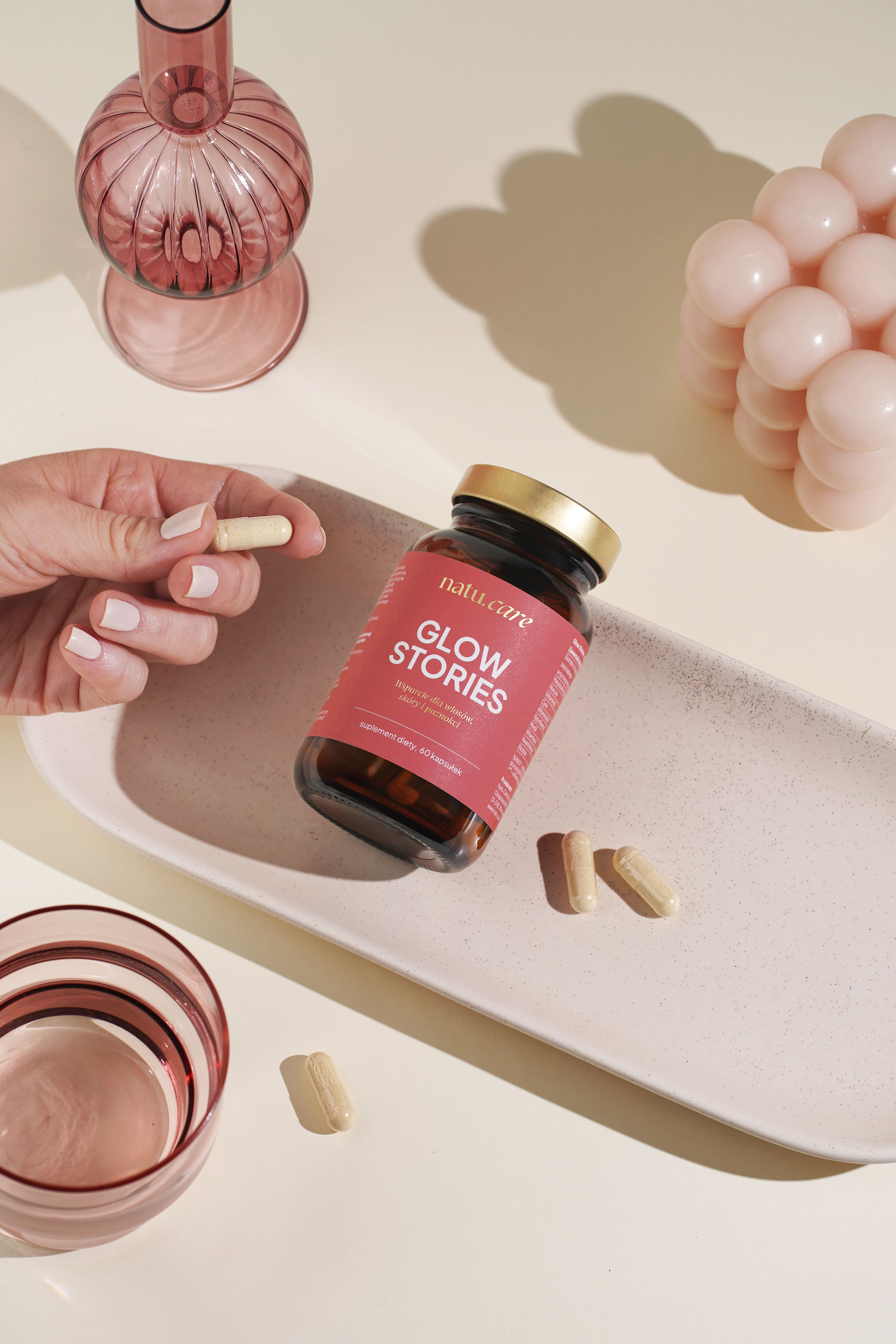
Glow Stories to formuła aktywnych składników, które zostały starannie dobrane wedle najnowszych badań naukowych. Znajdziesz w nich biotynę, cynk i miedź pielęgnujące zdrowie włosów i promiennej cery. Ponadto cynk jest odpowiedzialny także za zachowanie zdrowych paznokci. Mądra suplementacja zadba o Twoje piękno od środka.Julia Skrajda, dietetyk kliniczny
See also:
What zinc to choose?
The choice of zinc depends on individual needs. Most people are recommended zinc in chelate form as it is very well absorbed. Another good option is zinc picolinate, which is well tolerated by the gastric system - choose this if you have problems with upset stomachs.
what is the most bioavailable zinc?
The most bioavailable form of zinc is chelated zinc, especially in the form of zinc picolinate and zinc glycinate. These forms improve the absorption of zinc, thereby increasing its effectiveness and minimising potential side effects. Therefore, when choosing a supplement, it is worth paying attention to these forms.
Zinc tablets - properties
Supplementationzincin tablets is often the first step to get rid of a deficiency of this element. Why is it so important? Master of Pharmacy Ilona Krzak explains how zinc worksand:
- Takes an active part in protein production.
- Responsible for numerousmetabolic processes.
- Responsible for numerousmetabolic processes.
- Stabilises DNA and protects it from damage.
- Positive for theimmunesystem.
- It is essential for the synthesis and storage of insulin.
- Provides a positive effect on the immune system.
- Helpshealingof wounds, ulcers or burns.
- Promotes the health of the skin, hair or nails.
Collagen is also responsible for the health of the skin, hair or nailscollagen. You can find out more about it in the following articles:
- collagen,
- most powerful collagen,
- collagen for joints,
- collagen for drinking,
- fish collagen,
- sea collagen,
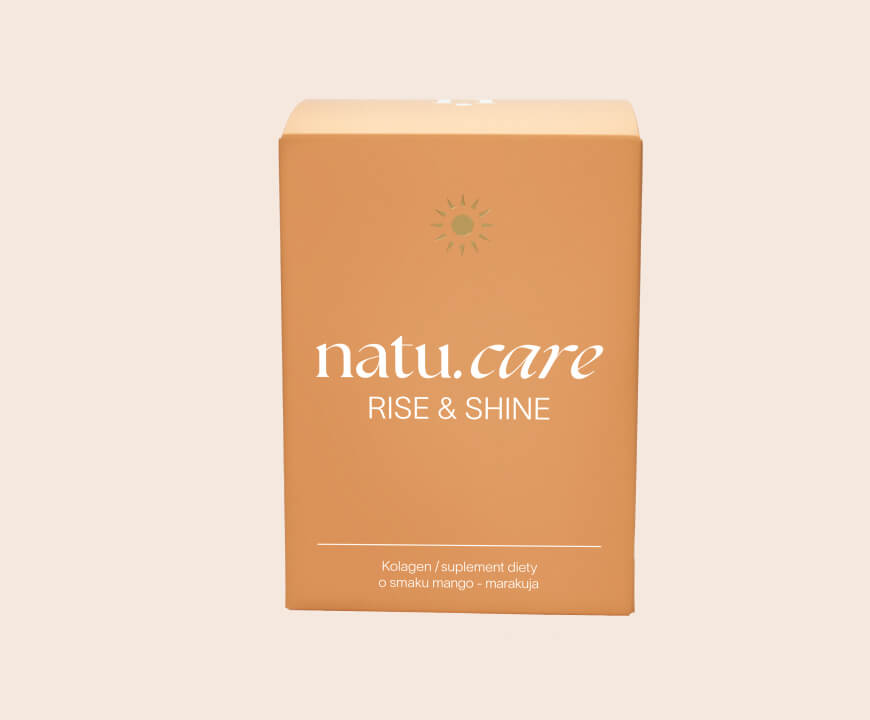
Rise&Shine: Collagen (5000 mg) in Mango-Maracuja flavour
Rise&Shine is collagen (5000 mg) in Mango-Maracuja flavour. Proven formulation, great bioavailability and refreshing taste.
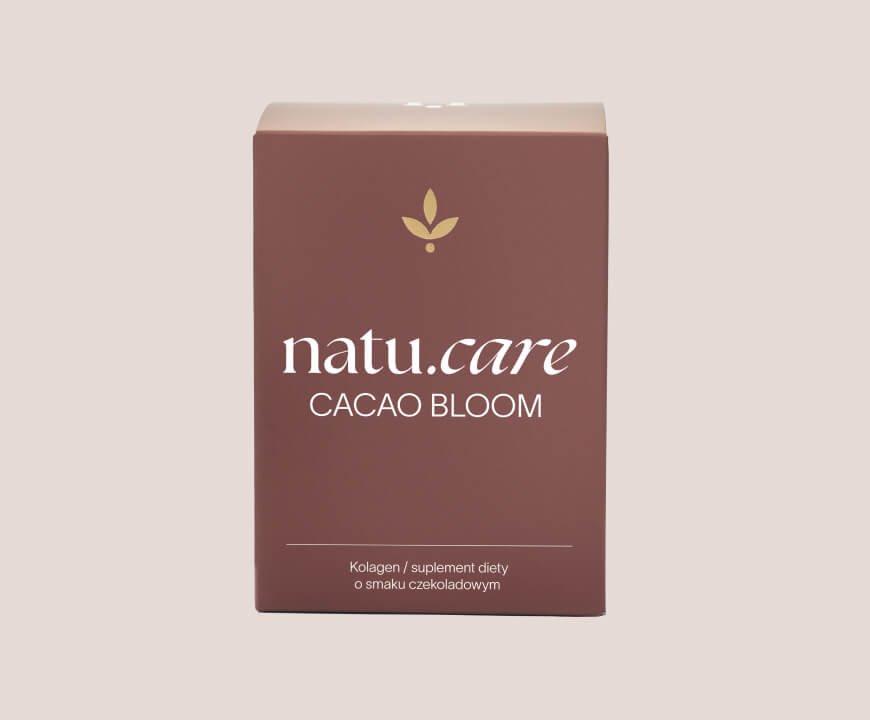
Cacao Bloom: premium collagen (5000 mg) with cocoa content
Cacao Bloom is premium collagen (5000 mg) with Dutch cocoa. A researched formulation, convenient dosage and unforgettable taste.
How to dosezinc tablets?
The dosage of zinc tablets depends on the formulation chosen and the manufacturer's recommendations. None of us should take more than40 mgof zinc per dayand. Excess of this mineral is very dangerous. Ilona Krzak recalls the case of a woman who consumed around 6 grams of zinc a day. Such a high overdose ended in death.
Zinc tablets - ranking the top 5 products
Cync - morning or evening?
Tablet zinc can be supplemented at any time of day. However, it will be most effective if you take it about one hour before a meal or two hours after eating. The exception is when zinc supplements cause an upset stomach. Then it is advisable to take them with a meal.
Zinc deficiency - what does it lead to?
Zinc deficiency is quite common. It affects17percent of the world's populationand. So one in six of your loved ones may be lackingthis valuable element. What does it manifest itself as? Master of Pharmacy, Ilona Krzak answers.
Symptoms of zinc deficiency:
- baldness,
- lossof body weight,
- diarrhoea,
- weakeningof the immune system,
- hypogonadism (defect of the reproductive system),
- weakened healing of wounds and ulcers,
- pustular dermatitis,
The immune system is also affectedvitamin B1,vitamin B6andpantothenic acid. Want to learn more about theseB vitamins? You're invited!
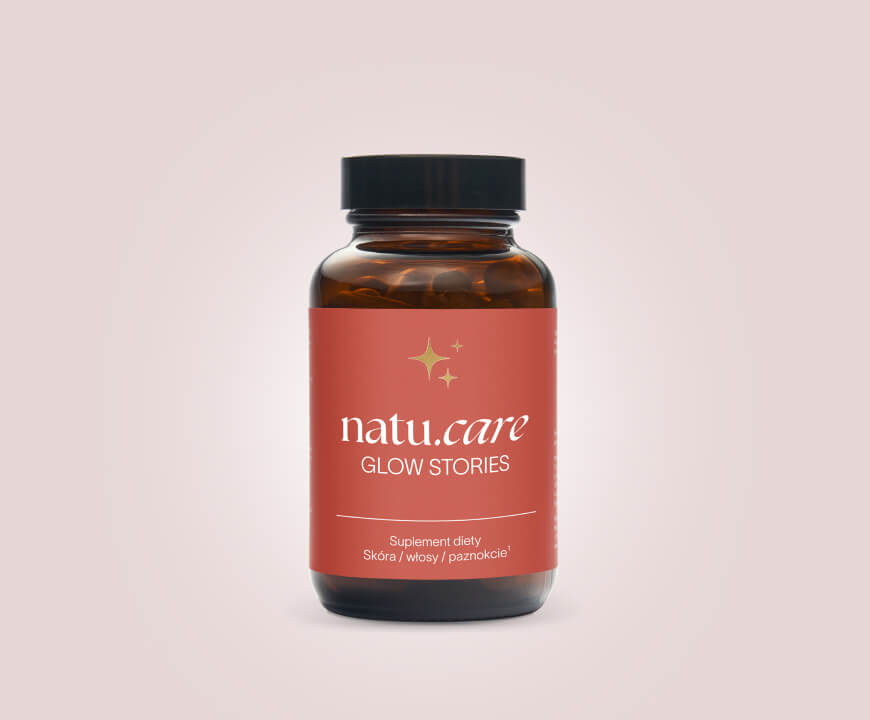
Glow Stories - for healthy skin, hair and nails
Product with high-quality folic acid Quatrefolic®, bamboo shoot extract and ingredients that have a positive effect on skin, hair and nails.
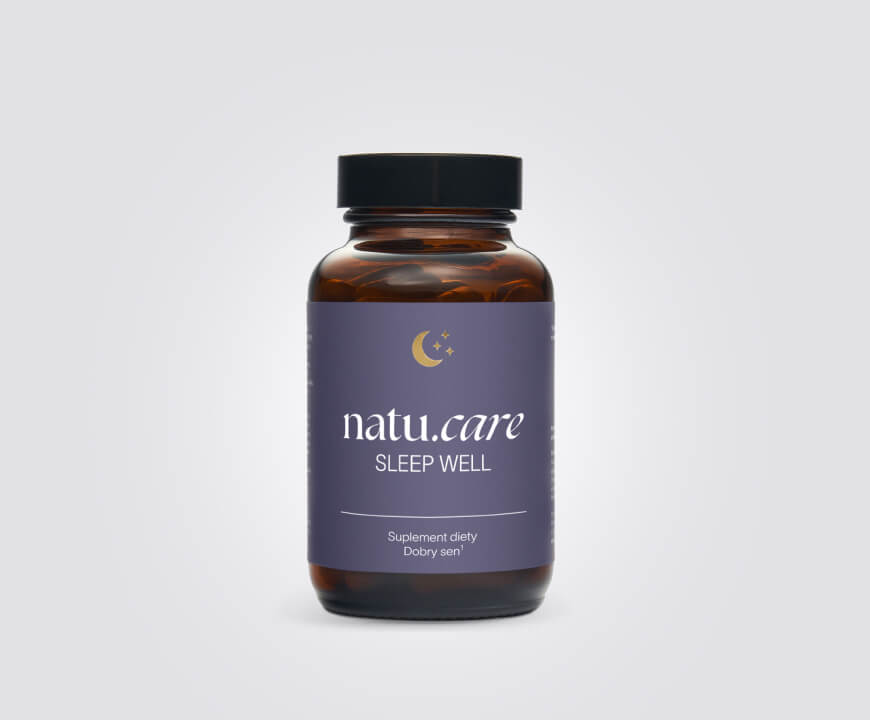
Sleep Well - a dietary supplement for good sleep and tranquillity
Sleep Well is a calming and relaxing dietary supplement with a standardised complex of CALMOMIX® herbal extracts and high-quality magnesium.
Who should supplement with zinc tablets?
In our overview, we have listed some preparations that, according to the pharmacist, are worth taking prophylactically. However, when should higher doses be used? Ilona Krzak explains who should supplement zinc in tablets.
Indicationsfor zinc supplementation in tablets:
- a diet rich in fibre,
- recovery period after burns, treatments, operations,
- diabetes,
- insulin resistance,
- insulin resistance.
- insulin resistance,
- cutaneous ulcers,
- pregnancy and lactation period,
- diabetes,
- insulin resistance,
- diabetes.
- pregnancy and breastfeeding period,
- diabetes,
- insulin resistance,
- dermal ulcers
- times of increased stress,
- inflammatory disorders,
- diabetes, and
- Alzheimer's disease,
- disease.
- Wilson's disease,
Contraindications to zinc supplementation in tablets
Despite the beneficial properties of zinc, not everyone should take it. Magister of Pharmacy reports that people with kidney failure, hypersensitivity to zinc salts or those struggling with copper deficiency should refrain from taking it. In addition, those with allergies to selected components of the supplementsand should be careful.
See also:
- Thyroid research
- Blood tests
- The liver: disease symptoms, functions, how to care for it and what to avoid
- Fatty (oily) liver
- Saturation
- Pulse oximeter
- How to take care of your mental health during a period of depressed mood
Summary
Remember:
- Zinc is responsible for metabolic processes, stabilises DNA and also influences immune system function.
- The dosage of zinc depends on the specific preparation.
- The dosage of zinc depends on the specific preparation.
- According to MSc Pharmacy, the best supplements with zinc are Zinc Forte, Zincas Forte and Zincas.
- Zinc tablets can be taken at any time of day, preferably onehour before a meal or two hours after eating.
- Zinc deficiency manifests itself in the form of hair loss, weight loss or diarrhoea, among other symptoms.
- The following are some of the most common symptoms of zinc deficiency.
- Zinc tablets should be supplemented by pregnant women, people with a dietrich in fibre, and diabetics.
- Contraindications to zinc tablets includepeople with renal failure, hypersensitivity to zinc salts, and those struggling with copper deficiency.
FAQ
How long can you take zinc tablets?
This depends on your state of health. If you are taking zinc in tablets prophylactically, you can take it all the time. It is different with supplementation to combat a deficiency. In this case, it is advisable to contact your doctor, who will monitor your situation.
How much zinc a day?
Dosing of zinc tablets should be according to the manufacturer's recommendations. Women over the age of 19 should take 8 mg of zinc per day with diet and supplements. Men, on the other hand, need even more - 11 mg. Excess zinc is dangerous and can manifest itself, for example, in nausea, vomiting or headaches.
Zinc - what not to combine with?
Zinc tablets cannot be combined with penicillamine, selected diuretics and tetracycline and quinolone antibiotics. Furthermore, MSc Pharmacy stresses not to take zinc tablets with iron and calcium. The minerals interfere with each other's absorption.
Is it possible to take zinc daily?
It is possible to take zinc every day. The most important thing is to follow the manufacturer's recommendations. Care should also be taken to take the correct dosage. Excess zinc manifests itself in unpleasant symptoms. Adult women should take (with diet and supplements) 8 mg of zinc per day and men 11 mg.
How many times a day to take zinc?
Zinc tablets should be taken as many times a day as recommended by the manufacturer of the particular formulation. Most often this will be a single dose, but there are exceptions.
Can zinc be combined with vitamin D3?
Yes, zinc and vitamin D3 can be combined. Both substances play an important role in maintaining health. Zinc helps the immune system function and regulates hormones, while vitamin D3 supports calcium absorption and the maintenance of healthy bones.
Always remember to take the correct dosage and consult your doctor or dietitian if you are taking other remedies.
Sources
See all
Desneves, K. J., Todorovic, B. E., Cassar, A., & Crowe, T. C.. (2005). Treatment with supplementary arginine, vitamin C and zinc in patients with pressure ulcers: A randomised controlled trial. Clinical Nutrition, 24(6), 979-987. https://doi.org/10.1016/j.clnu.2005.06.011
Office of Dietary Supplements-Zinc. (n.d.). Retrieved March 16, 2023, from https://ods.od.nih.gov/factsheets/Zinc-HealthProfessional/
Olechnowicz, J., Tinkov, A., Skalny, A., & Suliburska, J. (2018). Zinc status is associated with inflammation, oxidative stress, lipid, and glucose metabolism. The Journal of Physiological Sciences, 68(1), 19-31. https://doi.org/10.1007/s12576-017-0571-7
Pisano, M., & Hilas, O. (2016). Zinc and Taste Disturbances in Older Adults: A Review of the Literature. The Consultant Pharmacist, 31(5), 267-270. https://doi.org/10.4140/TCP.n.2016.267
Shankar, A. H., & Prasad, A. S. (1998). Zinc and immune function: The biological basis of altered resistance to infection123. The American Journal of Clinical Nutrition, 68(2), S447-S463. https://doi.org/10.1093/ajcn/68.2.447S
Editorials
Meet the team

Ilona Krzak obtained her Master of Pharmacy degree from the Medical University of Wrocław. She did her internship in a hospital pharmacy and in the pharmaceutical industry. She is currently working in the profession and also runs an educational profile on Instagram: @pani_z_apteki

Editor
Graduate of Journalism and Artes Liberales at the University of Warsaw. Since 2017, he has been working with the biggest portals in Poland and abroad as an editor. Previously worked for 3 years in one of the leading pharmaceutical companies - he knows the health and beauty industry inside out. In his free time, he most enjoys playing tennis or skiing.

Fluoride is an essential mineral for the proper functioning of the body. How does it work and is it harmful? Check!
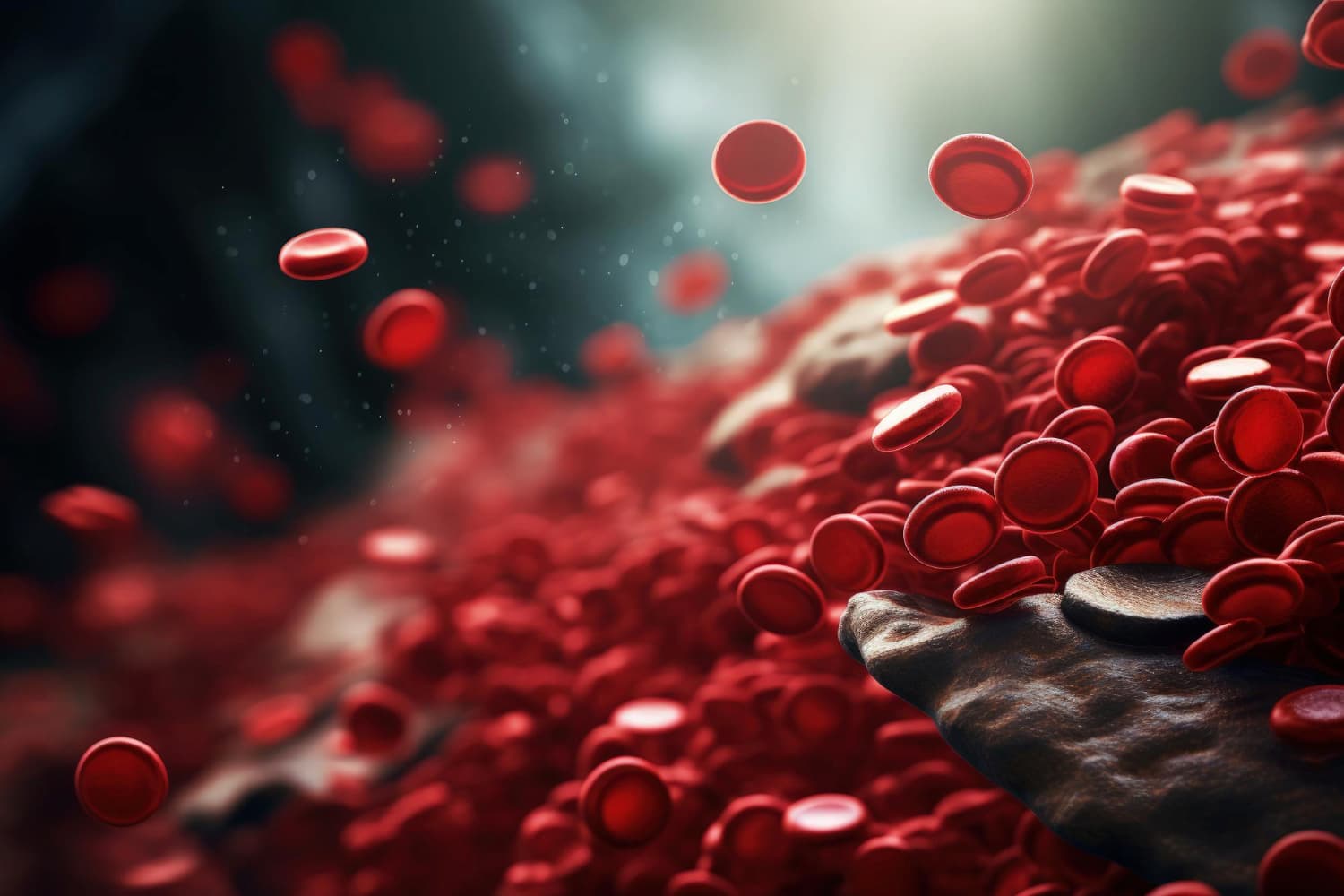
Iron deficiency is a dangerous condition leading to serious neurological and skin symptoms.

Phosphorus is a mineral element that supports bone health, nervous system function and also energy metabolism.
